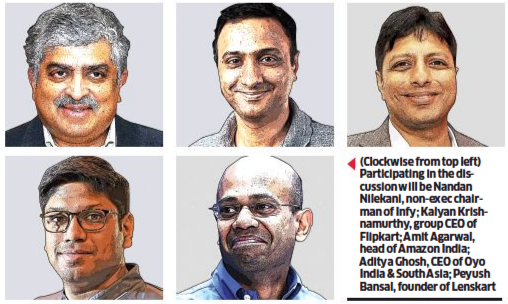More Indian companies are using smart technology to manage human resources, but with impact hard to quantify, budgets remain low
Fifty eight per cent of Indian organizations will invest in technology to enable employees and managers to self-manage people processes this year, according to a new report by People Matters, a HR media platform founded in 2009. Based on the digital agendas of India Inc organizations titled State of HR Technology India 2019-20, the study highlights the understanding of automation levels in different aspects of talent management and also entails companies’ investment plans in HR technologies and how can they future-proof HR teams for digital transformation.

ISTOCK
According to the report, there has been a ubiquitous increase in the adoption of HR technology, which testifies the progression of Indian companies towards the age of digital disruption in the HR space as well. Communication & collaboration, employer branding observed a surge in HR technology adoption by 21 percent and 17 percent respectively. However, strategic functions like Hipo (high potential employee) identification and management, succession planning, and strategic workforce planning are least mature in terms of technology
adoption. Even with investments ‘going up’ in HR technology for the year 2019-20, only 20 percent companies have allocated a budget of more than Rs 1 crore to this. About 45 percent plan to invest less than Rs 25 lacs in the next 12 months.
To increase effectiveness of HR execution emerges as the key objective of investment in HR technology. To empower employees and managers to self-manage people workflows and processes (59 percent) and to increase efficiency of HR execution (59 percent) completes the suite of top three core objectives of investment in HR technology.
When asked while shortlisting HR technology, which attributes do they look out for, ability to integrate (74 percent) was the top choice. However, it was found that only 37 percent companies have mainly an integrated system either from one partner (21 percent), multiple partners (8 percent) and in some cases, an integrated in-house technology (8 percent).
Cost still remains the prime factor in making HR technology investment decisions. As mentioned above, cost reduction was one of the objectives of investment in HR technology. The study also found that cost saving measures (49 per cent) is one of the top three metrics that companies track to measure the ROI of HR Technology. The other metrics include time-saving measures (54 percent) and HR operational metrics across functions (52 percent).
NEW-AGE HR TECHNOLOGY
The study shows that analytics, artificial intelligence (AI) & chatbots and cognitive technologies were ranked as the top three newage technologies that can create an impact on talent and workplace. Among the various technologies, blockchain emerged as the least mature technology because 39 percent of the respondents are not well-versed with it. While India Inc. organisations are highly optimistic about the opportunities that new-age technologies can bring to talent management and HR, the journey to adopting these technologies is not easy.
Organisations face challenges in adopting these technologies due to budget constraints, leadership buy-in, and lack of skills and capabilities in the HR team.
The limited budgets for HR technology (46 percent), leadership buy-in to experiment (43 percent), ability to measure return on investment (42 percent) are some of the challenges when it comes to adopting new-age technologies in their organization. Highlighting the HR involvement in adopting and executing technologies, the research reveals that in more than half of the participating organisations, the execution project is jointly owned by the HR team and the IT team.
As the world of work evolves, it is critical for organisations to leverage technology that enhances the speed of the overall people processes, empower employees, and build a team of better, more productive workers.
This study provided key insights into the current landscape of technology adoption rate, the approach towards building a digital HR function, and the challenges in adopting niche technologies in HR.
While organizations have kickstarted their HR digital journey, only three processes namely, HR operations, performance management, and communication & collaboration are automated more than 50 percent. The digitisation level has improved but still needs a lot of effort in the context of: investments, leadership buy-in, and skills and competencies of HR teams.
Limited budgets, leadership buy-in, and skills and competencies constitute the top three challenges in adopting the advanced technologies in HR. Currently, the efforts or investments in future-proofing HR teams are largely sporadic or in the planning phase.
From the study, it was evident that the HR service providers should focus more on integration, a strong analytics layer, and accessibility and mobility of technology as these form the suite of attributes that organisations are looking forward to while investing in any technology. Further, the investments in HR technology in 2019-20 have significantly increased by 35 percent as compared to the study done in 2016.
Source: Hindustan Times (Mumbai) dated August 20, 2019.

